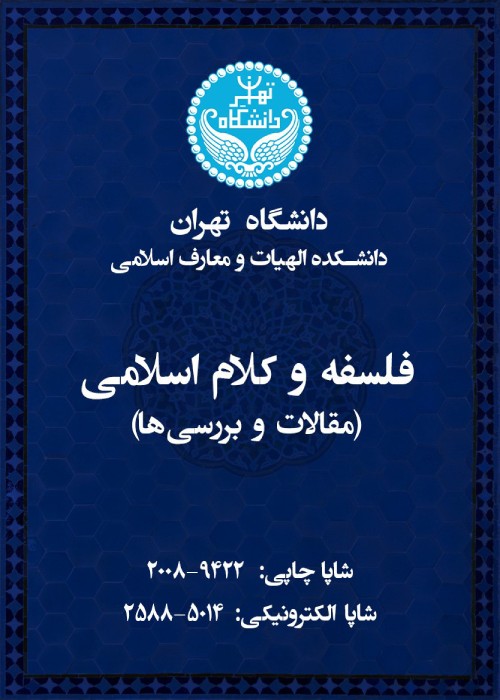The Theoretical Foundations of Deterministic Emanation in of Avicenna's Philosophy
Author(s):
Abstract:
The theory of emanation (ṣudur) is one of the solutions proposed in the Islamic philosophy for the problem of causation relation. This theory originates from the Neo-Platonist philosophy. In Avicennas works, this theory is sometimes based on the determination of the effect by its adequate cause, and sometimes on the notion of causal necessity. This article shows that Avicenna has argued for the theory of emanation based on a new model he provides for the latter notion. Avicenna discusses a new analysis for the relation between cause and effect according to which effect should be possible by itself. He argues that a being which is possible by itself does not come to existence unless it is necessitatedi.e., it comes out of the mere possibilityby some other thing that is necessary by itself. Therefore, necessitation plays the most crucial role in bringing something that is possible by itself to existence.
Keywords:
Language:
Persian
Published:
Philosophy & kalam, Volume:50 Issue: 1, 2017
Pages:
47 to 61
magiran.com/p1715160
دانلود و مطالعه متن این مقاله با یکی از روشهای زیر امکان پذیر است:
اشتراک شخصی
با عضویت و پرداخت آنلاین حق اشتراک یکساله به مبلغ 1,390,000ريال میتوانید 70 عنوان مطلب دانلود کنید!
اشتراک سازمانی
به کتابخانه دانشگاه یا محل کار خود پیشنهاد کنید تا اشتراک سازمانی این پایگاه را برای دسترسی نامحدود همه کاربران به متن مطالب تهیه نمایند!
توجه!
- حق عضویت دریافتی صرف حمایت از نشریات عضو و نگهداری، تکمیل و توسعه مگیران میشود.
- پرداخت حق اشتراک و دانلود مقالات اجازه بازنشر آن در سایر رسانههای چاپی و دیجیتال را به کاربر نمیدهد.
In order to view content subscription is required
Personal subscription
Subscribe magiran.com for 70 € euros via PayPal and download 70 articles during a year.
Organization subscription
Please contact us to subscribe your university or library for unlimited access!


